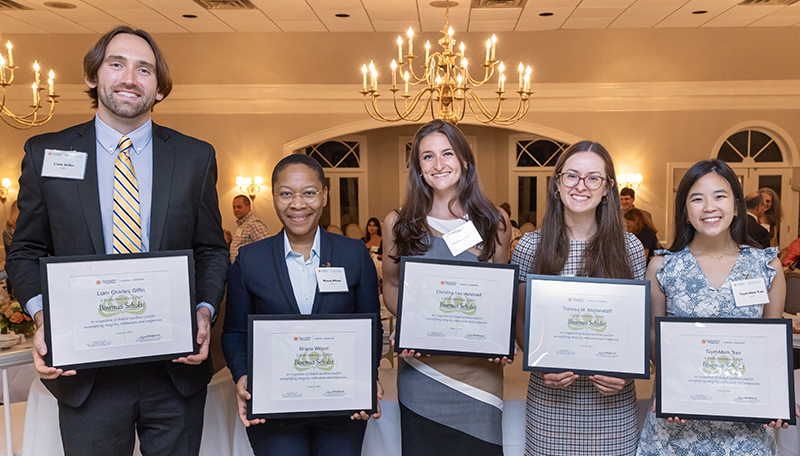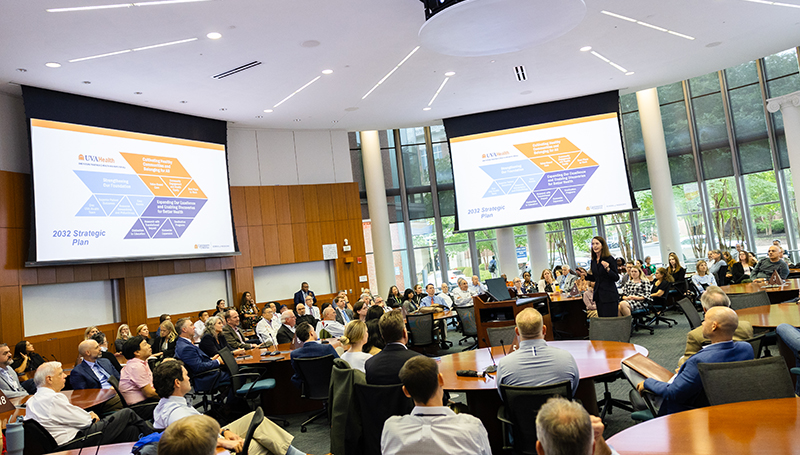
2024 Awards
The awards from the UVA Medical Alumni Association honor alumni, former trainees, and faculty of the UVA School of Medicine.
The UVA Medical Alumni Association has announced the recipients of its 2024 awards honoring alumni, former trainees, and faculty of the University of Virginia School of Medicine.
The 2024 award winners are:
- Walter Reed Distinguished Achievement Award: Matthew A. Howard, III, MD ’85
- Distinguished Achievement in Biomedical Sciences: William Wimley, PhD ’90
- MD Early Achievement Award: Richard Ma, MD ’05, Res ’11
- Early Achievement Award in Biomedical Sciences: John Lukens, PhD ’08
- Humanitarian Award: Richard C. Brown, MD ’63, MPH, FACP
Congratulations to this year’s recipients, and thank you to everyone who submitted a nomination. Award presentations will be made in the spring of 2025.
Anyone can submit a nomination for a candidate who meets the award criteria, and self-nominations are also accepted. Nominations are reviewed and recipients are chosen by a volunteer committee with diverse areas of expertise. Criteria for each award can be found online, along with a list of past winners and an FAQ.
Nominations for our 2025 awards will be accepted beginning May 1. Please consider submitting a nomination for yourself or a peer for our 2025 Awards!
About Our Award Winners
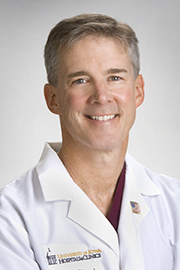
The UVA Medical Alumni Association is pleased to announce the recipient of the 2024 Walter Reed Distinguished Achievement Award: Matthew A. Howard, III, MD ’85.
Dr. Howard is professor and chairman of the Department of Neurological Surgery at the University of Iowa. He received his undergraduate degree in physics from Tufts University. As a medical student at the University of Virginia, he collaborated with neurosurgery resident Dr. Sean Grady and Physics Professor Rogers Ritter to invent the magnetic surgery system, whereby flexible implants within the body are guided by externally generated magnetic fields. That system is now used to perform robotic cardiac ablation procedures in patients throughout the world.
Dr. Howard received his neurosurgery residency training at the University of Washington, and during his residency he was awarded an NIH Individual National Research Award to pursue post-doctoral fellowship training in cortical electrophysiology research. In 1993, he joined the faculty at the University of Iowa and established the Human Brain Research Laboratory (HBRL) with collaborating neuroscience colleagues at the University of Iowa and throughout the U.S. and overseas. HBRL researchers study neurosurgery patients who require brain mapping procedures as part of their clinical treatment plan. Findings from these studies have advanced our knowledge of how neural processes within the human brain enable us to communicate and experience emotions. These findings are regularly published in leading scientific journals including Nature, Nature Neuroscience, and Nature Communications.
Dr. Howard has received continuous NIH funding as a principal investigator since 1995. As chairman of the Department of Neurological Surgery at the University of Iowa, he directs and oversees a high acuity surgical service where more than 3,000 major neurosurgical procedures are performed and over 14,000 clinic patients are evaluated each year. He also serves as the physician co-chair, along with the hospital CEO co-chair, of the Clinical Systems Committee that oversees clinical operations for the University of Iowa Healthcare system.
In 2014, he was selected by the Society of Neurological Surgery as the recipient of the Winn Prize, which is the specialty’s highest award for career achievement in neuroscience research. He is an experienced medical device inventor with 36 issued U.S. Patents, and he has co-founded four university spin-off medical device companies. In 2019, Dr. Howard was elected a fellow of the National Academy of Inventors.
He is married to children’s book author Delia Ray Howard who is a 1985 graduate of UVA’s College of Arts and Sciences. They have three daughters, including Lily Howard who graduated from UVA’s College of Arts and Sciences in 2017.
Congratulations to Dr. Howard on this well-deserved award.
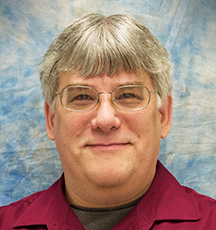
The UVA Medical Alumni Association is pleased to announce the recipient of the 2024 Distinguished Achievement Award in Biomedical Sciences: William Wimley, PhD ’90.
Dr. Wimley is the George A. Adrouny Professor of Biochemistry and Molecular Biology at Tulane University School of Medicine, New Orleans, La. He has devoted his career to solving the daunting challenge of developing and understanding peptides that have activities targeted to specific biological membranes. To address this problem, he developed a novel method which enables the evolution and optimization of peptides with complex bioactivities. His research on membrane-active peptides is helping to solve some of the most important problems facing humanity. For example, one focus of the Wimley lab has been the synthetic evolution of novel families of peptide antibiotics that can treat drug-resistant bacterial infections, to help fight the alarming rise in otherwise untreatable infections. Another focus of the lab is the development of new drug delivery chemotypes that address the urgent need to enable delivery of novel bioactive macromolecular drugs to the cell interior to treat challenging diseases such as cancer. Dr. Wimley’s most recent NIH grant supports the study of synthetically evolved pH-responsive peptide nanopores, which he and his collaborators developed, that can deliver protein cargoes to the interior of target cells including cancer cells.
Dr. Wimley has an uninterrupted 34-year record of peer-reviewed publications starting with his first paper, which was published in 1990 while he was still at UVA. He also holds five US patents based on discoveries made in his lab. His research in the field of membrane biophysics has been impactful. As a postdoc, he published a series of influential papers describing the “Wimley-White hydrophobicity scales” which remain widely used today in bioinformatics and structural biology. To enable the discovery and optimization of membrane-active peptides, Dr. Wimley developed a synthetic molecular evolution-based high-throughput approach that has been used for optimization of many different families of bioactive peptides. In addition to his translational work, Dr. Wimley has contributed significantly to understanding the fundamental mechanistic principles of membrane-active peptides. In a number of prominent, widely cited review papers, he has defined the “interfacial activity model” to describe the mechanism of peptide antibiotics and has developed the concept of “mechanistic landscapes” to describe multiple families of membrane-active peptides.
He has been continuously funded by NIH, NSF, or other grant agencies since his first NIH grant at Tulane in 1999. He has published 125 peer reviewed papers, including 24 papers published since 2020.
Dr. Wimley has also contributed significantly to the education of Tulane’s interdisciplinary Biomedical Sciences PhD students. After Hurricane Katrina, in 2005, he became the director of the Graduate Biochemistry course, a required core course, taken by all PhD students. In 2006, he responded to the lack of statistical training of Tulane’s PhD students by launching a new core course in Biomedical Statistics and Data Analysis. This course, designed from the ground up and taught solely by Dr. Wimley, has been so popular for nearly 20 years that PhD students from other programs, as well as postdocs, and even faculty, routinely take the course.
Congratulations to Dr. Wimley on this well-deserved recognition.
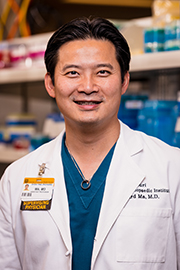
The UVA Medical Alumni Association is pleased to announce the recipient of the 2024 MD Early Achievement Award: Richard Ma, MD ’05, Res ’11.
Dr. Ma is the Gregory L. and Ann L. Hummel Distinguished Professor of Orthopaedic Surgery at the University of Missouri. He is the current director of the Division of Sports Medicine, co-fellowship director for the Orthopaedic Sports Medicine and Surgery Fellowship, and the medical director of outpatient clinics for the Department of Orthopaedic Surgery and the Missouri Orthopaedic Institute. Dr. Ma also serves as an official team physician for the University of Missouri Tigers Athletics.
Dr. Ma received his undergraduate, medical school, and residency education at the University of Virginia. After his time in Charlottesville, he completed a two-year clinician scientist fellowship program at the Hospital for Special Surgery in New York, with emphasis in sports medicine and shoulder surgery. In addition to his clinical work, he currently directs research programs within the Thompson Laboratory for Regenerative Orthopaedics and the Rugby Research and Injury Prevention Group. His primary clinical and research interests are in sports medicine and arthroscopic surgery, understanding the mechanobiology of healing after ACL repairs, identifying biological indices that predict healing after ACL surgery, and sports injury epidemiology and injury prevention. His interests in musculoskeletal research led him to pursue a PhD with a focus on understanding the post-operative joint response to injury and surgery.
Dr. Ma has authored and contributed to over 250 manuscripts, abstracts, and research presentations at various national and international forums. His team’s research has been recognized by several national organizations including the American Orthopaedic Society for Sports Medicine, American College of Sports Medicine, Sports Medicine Australia, National Football League, and the Orthopaedic Research and Education Foundation. In 2023, Ma was one of four U.S. orthopaedic surgeons selected to be a part of the American Orthopaedic Association – Japanese Orthopaedic Association Traveling Fellowship. He has also been recognized for excellence in medical research and trainee education at the University of Missouri, where he has received the Dorsett L. Spurgeon Distinguished Medical Research Award and the Barry J. Gainor, MD Excellence in Teaching Award.
Congratulations to Dr. Ma on this well-deserved award.
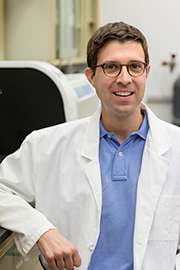
The UVA Medical Alumni Association is pleased to announce the recipient of the 2024 Early Achievement Award in Biomedical Sciences: John Lukens, PhD ’08.
Dr. Lukens grew up in the Philadelphia area. For college, he attended the University of Richmond, where he pursued organic chemistry research in the laboratory of Dr. John Gupton. During his time in the Gupton lab, he contributed to the synthesis of a pyrrole-based bioactive marine natural product.
He received his PhD from the University of Virginia in 2008 for his work describing roles for PD-1 and functional T cell exhaustion in persistent liver infection. For his postdoctoral training, he worked in the laboratory of Dr. Thirumala-Devi Kanneganti at St. Jude Children’s Research Hospital where he identified how innate immune dysfunction contributes to autoinflammatory diseases such as multiple sclerosis, osteomyelitis, and dermatosis.
In Fall 2014, Dr. Lukens returned to UVA to launch his lab in the Department of Neuroscience and the Center for Brain Immunology and Glia (BIG). His group is focused on understanding the involvement of inflammasomes, immune-based genomic sensors, microglia, and the meningeal lymphatics in Alzheimer’s disease, traumatic brain injury, multiple sclerosis, and autism. His research has received millions of dollars in financial support from the National Institutes of Health, the Owens Family Foundation, the Cure Alzheimer’s Fund, the Alzheimer’s Association and the Department of Defense, among others.
In May 2024, Dr. Lukens was named as the inaugural director of the University of Virginia’s Harrison Family Translational Research Center in Alzheimer’s and Neurodegenerative Diseases.
A dedicated educator and generous mentor, he has launched the careers of many promising young scientists who are advancing the field of Alzheimer’s research and expanding our understanding of the role of the immune system in neurological diseases.
Congratulations to Dr. Lukens on this well-deserved award.
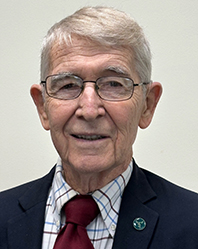
The UVA Medical Alumni Association is pleased to announce the recipient of the 2024 Humanitarian Award: Richard C. Brown, MD ’63.
Richard C. Brown applied to medical school with the intention of serving poor people in poor countries. After earning his MD at the University of Virginia and completing an internal medicine residency, he received a degree in public health nutrition and tropical medicine at the Harvard School of Public Health. He then obtained board certification in preventive medicine.
In 1966, Dr. Brown accepted a commission in the United States Public Health Service which promised him a post in Monrovia, Liberia, with the JFK Hospital Project. This project was managed by the Centers for Disease Control (CDC), and he was appointed as director of its training school for Liberian health workers. The training was for Liberian nurses, sanitarians, and village health workers.
Here, on his first overseas assignment, Dr. Brown learned how to teach health subjects in an African setting. He experienced the need for practical teaching materials, clearly written with a recognizable English vocabulary. English was the second or third language for these students. The experience gave Dr. Brown a background for his later production of field manuals, designed for use by health workers who worked alone in rural African village settings.
Dr. Brown was serving in Nazareth Hospital, outside of Nairobi, Kenya, when the AIDS epidemic took hold there. He immediately formed an HIV/AIDS team and secured funds from family and friends to build a clinic building for managing ambulatory patients living with HIV/AIDS. The Nazareth AIDS work drew the attention of the Kenyan National Health Service, and Dr. Brown was appointed a member of the national AIDS Task Force. At his final departure from Africa in 2005, more than 4,000 AIDS patients were under care at Nazareth Hospital.
Dr. Brown’s career of service also carried him to long-term assignments in Tunisia, Cameroon, Democratic Republic of Congo (Zaire) and Kenya. He spent two years in Haiti (1993-95) as medical director of Hopital Ste Croix in Leogane.
He also did short-term evaluations and consultancies for the World Bank, USAID and non-governmental organizations. For these assignments, he was called to Egypt, Mali, Senegal, Liberia, Ivory Coast, Nigeria, Congo, Tanzania, Uganda and Kenya.
Dr. Brown’s undergraduate alma mater, the University of Richmond, recently awarded him an honorary Doctor of Science degree. The citation accompanying this award gave full recognition of his contributions to society and to humanity.
Congratulations to Dr. Brown on this well-deserved recognition.

